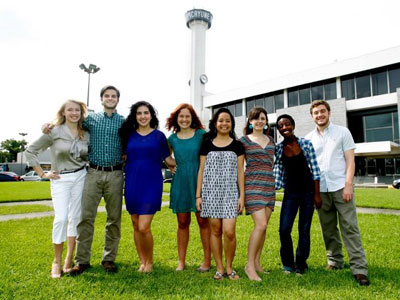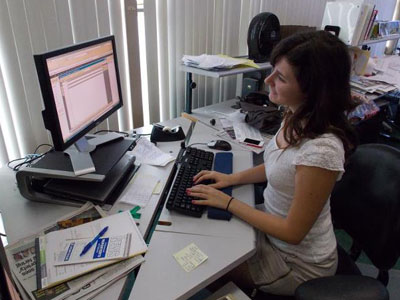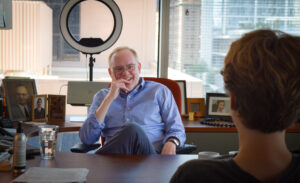EDITOR’S NOTE: DiAngelea Millar is a junior at the Cronkite School of Journalism and Mass Communications at Arizona State University. She is completing her bachelor’s and master’s degrees concurrently and hopes to become a “special projects feature reporter at a newspaper while being a famous author of fictional novels.” She spent the summer in New Orleans on The Times-Picayune business desk.
I’m the last Money intern the Times-Picayune will ever have.
As of Sept. 30, 2012, the Money section will cease to exist as Advance Publications cuts the printing of one of America’s finest newspapers to three days a week. I’m in the last batch of interns that has the right to say we interned for the Times-Picayune.
Through my brief tenure at the paper during this summer I’ve been confronted by the reality of the journalism industry in one of the harshest ways imaginable. I know the business of journalism; it slapped me in the face this summer as the paper announced they were cutting printing back and firing reporters.
But no one expected what went down. I can only think to compare it to the Titanic — the sinking of something that no one thought would ever fail. But it did. People were thrown off ship and some jumped ship before time ran out.
Through all the chaos I did the only thing I could do — observe and learn.
I was there the day people were told of their fates. I saw reporters cry as their lives were turned upside down. I was in shock that week and I too fell apart down a spiral of self-doubt. Could I succeed in this world? Was I cut out for journalism? Could I bounce back if something similar happened to me?
‘Through all the chaos,
I did the only thing
I could do —
observe and learn.’
I’m 20 years old, too young to have such concerns. But journalism made me grow up fast—you have to if you want to make it in the business. I cried and for awhile I was fairly certain I would turn my back on all this after I graduate in two years.
But then the community gave me hope.
From everyday citizens to big shot business owners in the city, people started to rally demanding that Advance Publications keep the paper the way it is. New Orleans is a city full of history and tradition. But it’s a city that has a large number of people who don’t have access to the Internet, who rely on the daily paper for information. This city has so many crazy things going on – stories about crime, a growing tech industry and government issues – that the community still feels the need for a daily printed newspaper.
Pleas for reconsideration fell on deaf ears.
People offered to buy the paper. Advance Publications said ‘No.’
But the energy from the public around the newspaper’s fate gave me hope—people do care about journalism. People want news, they want the truth. That doesn’t seem to be changing. Seeing a community care so much about its paper made me realize that what I do is a necessity and something to be cherished.

But the greatest strengths I saw came from within the publication. Reporters were there for each other — their support forged from the strongest steel of respect and understanding. I saw an amazing strength in some of the reporters and editors I interacted with. Their composure in such a frantic, life-changing time taught me a valuable lesson.
Keep your head up, don’t let anything stop you.
They kept working, even though they knew their time was limited and the company didn’t want them anymore. They were searching for new jobs, always optimistic that something would work out.
Friends and family told me that this was a good “lesson” for me to learn so that I will realize that reality can be harsh. I already knew about reality. But they were right—I did learn a valuable lesson about the business of journalism.
The paper is a product and reporters are considered disposable. What the destruction of the Times-Picayune and the creation of Nola Media group has engrained in my young mind is the knowledge that a reporter is never safe. You’ve got to keep your options open and keep working and honing your skills.
As a young reporter interested in entering the field, I’ve got to be the best of the best in my age bracket if I hope to get a job when I graduate in two years. This means giving up my summers and spreading myself thin during the semester to intern at a paper.
But after my summer in New Orleans, I’d like to think that the sacrifice for my work will be wanted and cherished by a community and that I will forge friendships with other reporters, thus becoming part of a journalism family found in many newsrooms.











